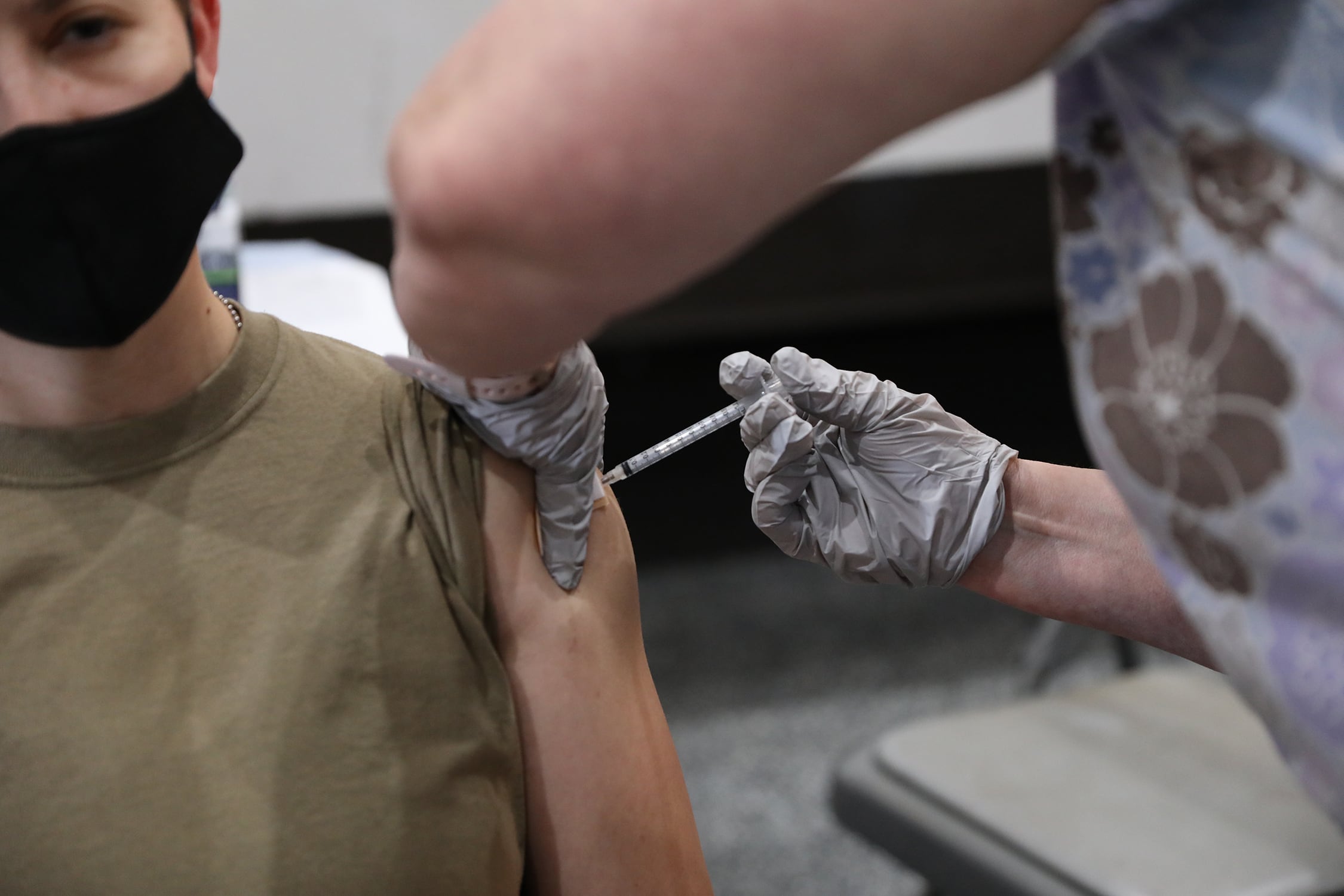After a months-long surge that saw COVID-19 deaths among service members nearly triple, there haven’t been any reported in the past two weeks, according to numbers updated Wednesday by the Defense Department.
The service member death toll stands at 75, up from 29 at the end of July, a number that spiked through the end of summer and into the fall as delta variant cases ravaged parts of the United States. August, September and October saw double-digit death numbers, but those have subsided as mandatory vaccination deadlines close in.
“This is a clear indicator of the success of the vaccine mandate, as 98.5% of the active force has had at least one shot,” Army Maj. Charlie Dietz, a Pentagon spokesman, told Military Times on Wednesday.
Of those 75 troops who died of COVID-19 complications, none were fully vaccinated. Two had completed the first of a two-dose regimen.
The military’s overall death rate has been 0.03%, significantly lower than 1.6% overall in the U.S., but that number is over 50 times higher than the military’s mortality rate before the late-summer delta variant surge.
While the delta variant is not more deadly than its predecessors, it is much more easily transmitted, which resulted in increased cases and therefore, increased deaths.
To date, the military services together report more than 250,000 COVID-19 cases, or 11 percent of the force. The overall U.S. rate is closer to 16 percent.
To combat any further surges, Defense Secretary Lloyd Austin announced in August his intention to mandate vaccination for active and reserve troops. Each service then laid out its own deadlines, starting with the active duty Air Force on Nov. 2 and finishing with the Army Reserve and National Guard by the end of June.
So far, 1,555,424 troops are fully vaccinated with another 323,260 having had the first of a two-dose regimen, leaving about 421,000 ― most of them in the Army Reserve and National Guard ― completely unvaccinated.
Each of the services has created policies to involuntarily separate troops who refuse to be vaccinated and who do not have an approved exemption.
While those cases are handled, soldiers will be barred from reenlistment and airmen will not be able to complete any scheduled permanent change-of-station moves.
RELATED

There may be a legal fight ahead for some National Guard troops. The Oklahoma adjutant general announced earlier in November that, on the order of the state’s governor, he would not enforce the federal vaccine mandate.
As Guard troops are under the control of their governors unless federally mobilized under U.S. Title 10, there is a possibility that their chains of command will not initiate involuntary separations in accordance with their service secretaries’ orders.
However, that refusal could at least bar them from not only deployments, but federal training and professional military education required to continue their careers.
A defense official told reporters Nov. 17 that scheduled drill weekends, which are conducted in a state-controlled, federally-activated status, would also require vaccination or result in consequences.
It is also possible that the National Guard Bureau, or the Air Force or Army departments, can individually audit their unvaccinated Oklahoma troops and initiate separations from a headquarters level.
The Pentagon has said it can enforce its lawful order, but has not provided details on how that will be done.
Meghann Myers is the Pentagon bureau chief at Military Times. She covers operations, policy, personnel, leadership and other issues affecting service members.




